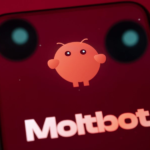Cybersecurity is more than just software, says George Kurtz, cofounder and CEO of CrowdStrike.
“What we do at CrowdStrike is as old as time,” he told Fortune. “It’s good versus evil. It’s a human nature story embodied in technology.”
Kurtz spoke to Fortune exclusively about the Onum deal and CrowdStrike’s M&A strategy going forward.
“If you think about the data we have, we started becoming the Reddit of security data for all these AI models,” said Kurtz. “The more data we get in, the larger the moat we actually have, and the greater the opportunity we have to solve bigger and broader problems from an AI perspective. That’s really driving our vision for AI-native SOC [security operations center]. It’s a natural extension.”
In part, this is looking toward a future filled with AI agents.
“Our goal is to secure every AI agent,” said Kurtz. “Okay, what’s an AI agent? An AI agent is basically superhuman. It has access to data. It has an identity, though it might be a nonhuman identity. It has access to a workflow, and it has access to systems that are outside of your own boundaries … So, it has all of the exposure that we’re protecting against.”
In a lot of ways, Onum is a classic CrowdStrike deal. Since 2017, CrowdStrike has acquired eight companies, including Humio in 2021 for $400 million, and Flow Security in 2024 for a reported $200 million.
“There are some companies that are obviously richly valued,” Kurtz said. “I think some of these companies don’t realize that they are starting to move into zombie-land: You look at their last round valuation, and it might be great for them, but it’s expensive, and it’s necessarily actionable for a lot of companies, even ours … So you start to hit these big, multibillion-dollar valuations with not a lot of ARR [annual recurring revenue], relatively speaking, and your pool of buyers dramatically shrinks. That’s why we like to catch them in the sweet spot of where we can add value, and that value accrues to CrowdStrike’s shareholders.”
The goal, in the end, remains the same—security, and fighting the bad guys (who now have more weapons to play with).
“With gen AI, we’re democratizing destruction,” said Kurtz. “We’re taking a very sophisticated topic known by a relatively few number of people … and now you’re making all that expertise available to many more people … The biggest thing is that you’re really compressing the time frame that the good guys have to be able to deal with these problems, because the bad actors are moving so much faster now.”
What’s one thing Kurtz is sure of, looking to the future?
“We know there’s going to be a greater need for security tomorrow than there is today,” he said.









